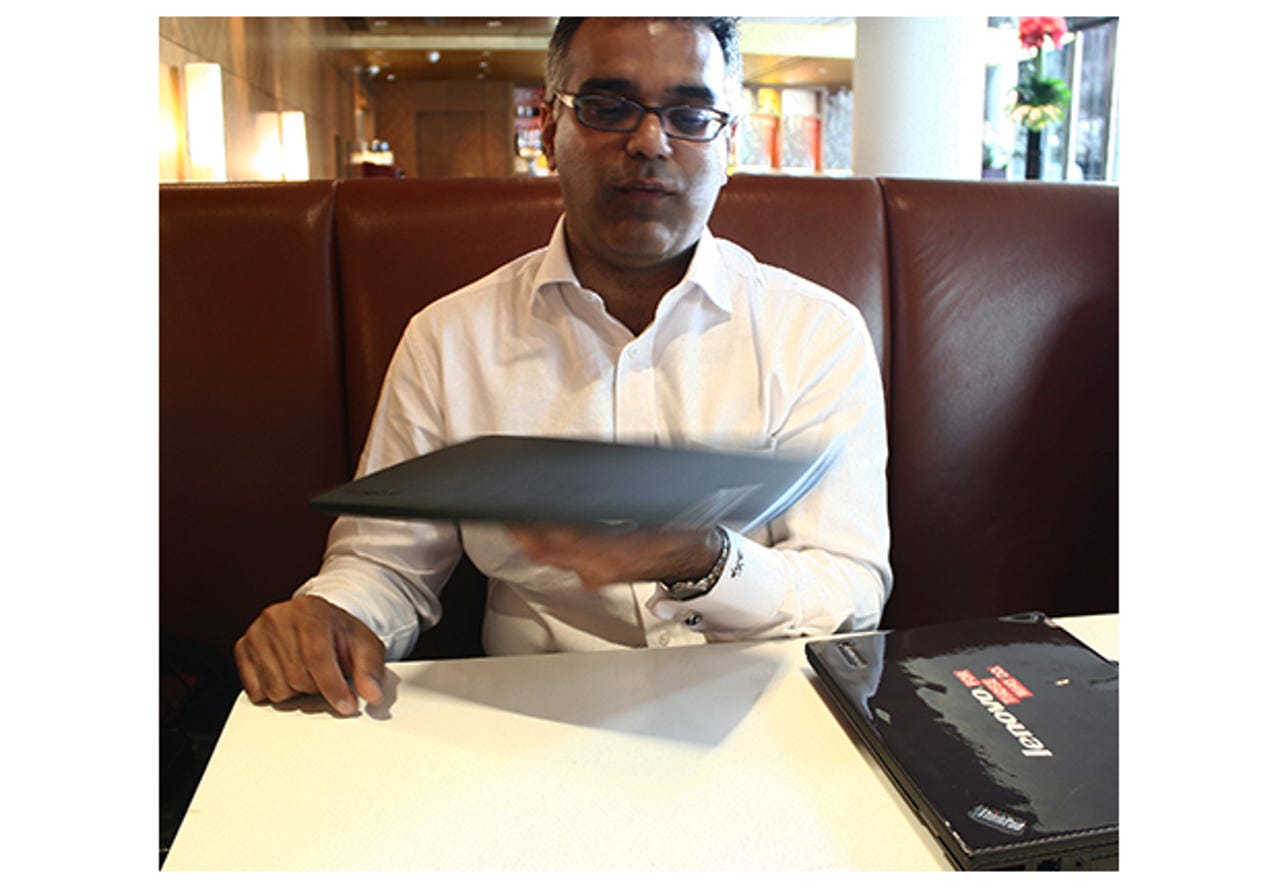Lenovo talks ThinkPads and servers

Lenovo is now the number-two PC vendor worldwide and has just posted record results for the 2011/12 financial year ending 31 March. Little wonder, then, that Dilip Bhatia, vice president and general manager of the company's ThinkPad Business Unit, was in bullish mood when I met him this morning in London (not even a two-hour cab ride from Heathrow managed to dent his enthusiasm).
According to Bhatia, Lenovo's overarching strategy, which is dubbed 'Protect and Attack', reflects a "boxer's mindset" — protecting key markets in the company's home China territory and in the enterprise client space, while attacking new opportunities in the post-PC (or "PC-plus" as Bhatia puts it) era.
Notebooks form a key part of what Lenovo seeks to protect: in the fourth fiscal quarter ending 31 March 2012, ThinkPads and the more consumer-focussed IdeaPads accounted for 56 percent of the company's overall sales. Lenovo sees new opportunities in other types of devices — smartphones and feature phones (currently sold only in China), tablets, smart TVs and also servers.
Lenovo has recently announced a refresh of the ThinkPad range, primarily to accommodate Intel's '3rd Generation' Core processors (the 22nm chips formerly codenamed Ivy Bridge), and Bhatia was touting the flagship X1 Carbon ultrabook, which is expected in Europe later this year.

The 1.36kg X1 Carbon — which, as the name suggests, features a strong but lightweight carbon fibre chassis — seeks to combine traditional ThinkPad qualities of durability, manageability and security with 'consumerisation' influences from the tablet/smartphone world. These include design elegance (it's 1.88cm thick, compared to 2.1cm for most ultrabooks, according to Bhatia), a backlit keyboard, a high-resolution (1,600-by-900-pixel) 14in. screen, Dolby Home Theatre audio and SSD storage only. Mobile broadband (3G and LTE) is integrated as standard, and the keyboard is the high-quality scalloped island-style design seen on last year's ThinkPad X1. A key feature for mobile professionals will be the RapidCharge technology that charges the battery to 80 percent capacity in just 35 minutes; Bhatia was also keen to stress the X1 Carbon's estimated 30-day standby time, thanks to heuristic power management that puts the system into deeper sleep where appropriate, once the user's typical usage pattern has been established.
To illustrate Lenovo's developing design philosophy, Bhatia confided that: "Internally we used to joke that if Star Trek's Mr Spock had a notebook, it'd be a ThinkPad — it's a very rational design; with the X1 Carbon, we tried to create a design that combines the rational and the emotional aspects". And with access to "350 engineers who have been designing ThinkPads for 20 years", Bhatia is confident that his team can "provide an amazing [ThinkPad] experience for both work and life".
A market where Lenovo has conspicuously failed to shine is servers, and although it isn't his direct responsibility, Bhatia was happy to note that the company has "a commitment to attack that space", adding that "we feel we have the products this year" to improve on Lenovo's "very small" server market share. He wouldn't be drawn on the level of sales that the company is aiming for, though.
Finishing up, Bhatia confirmed that Lenovo was "partnering with Intel and Microsoft" on an x86 Windows 8 ThinkPad tablet, and noted that last year's Android-based ThinkPad Tablet had "done well" in the business market. No specifics were offered on the forthcoming x86 tablet, but Bhatia was "confident that it'll be the best Win 8 tablet". His observation that "business customers have a lot of legacy Windows apps" suggests that we won't see an ARM-based Windows RT tablet from the ThinkPad division.